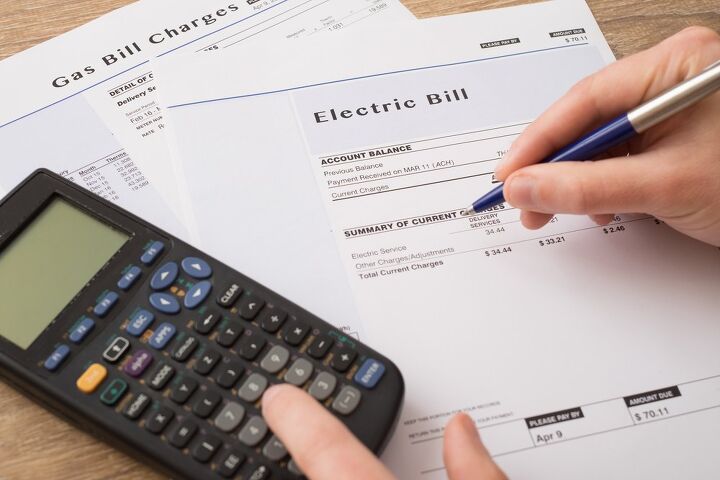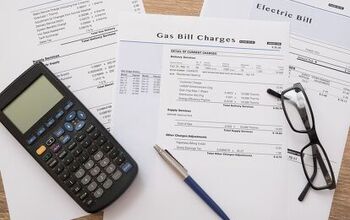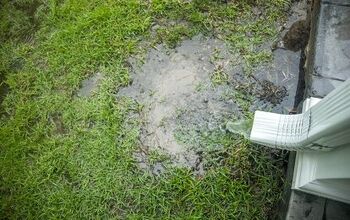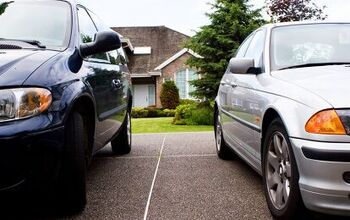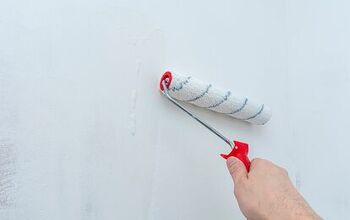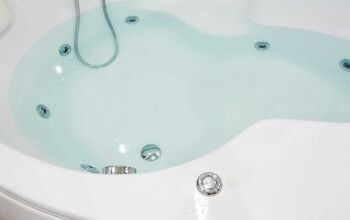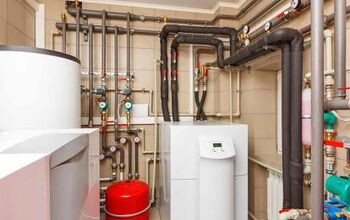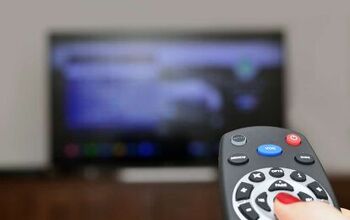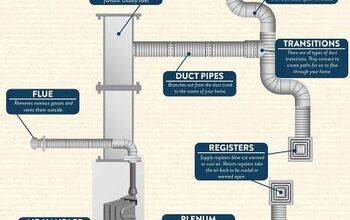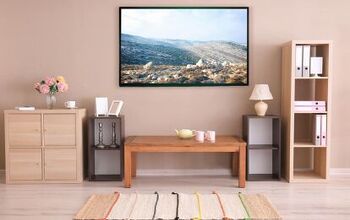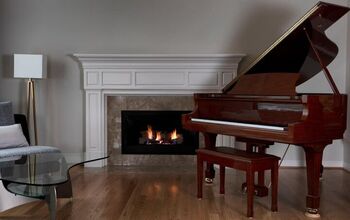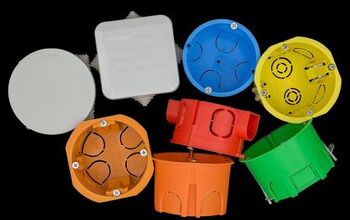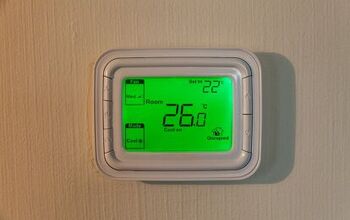My Landlord Is Using My Utilities! (Here's What You Can Do)

Utilities are often quite expensive. Depending on where you live, certain bills can fluctuate from very small to astronomical in certain months. If you discover your landlord is using your utilities you will likely become upset.
Before you angrily confront your landlord, be sure to do your due diligence and research.
If you discover your landlord is using your utilities, confirm you are the one paying for these utilities. Check your lease to confirm who is responsible for paying the utilities in question. See if there is any information about who is allowed to use these utilities. Collect evidence and write your landlord an official correspondence with a proposed solution.
Do You Need to Hire Movers?
Get free, zero-commitment quotes from pro contractors near you.

What Utilities Must A Landlord Provide?
A landlord, by law, is obligated to provide you with a habitable dwelling. This includes a safe place to live with access to essentials. Some essentials include running water, heat, and electricity.
A landlord is required to provide access to these home essentials. However, the landlord is not responsible for paying for any of these utilities. Although rules will vary from place to place, a landlord is typically under no obligation to pay your utilities.
If your landlord does not assume responsibility for any utilities in your rental agreement then it is your job to pay for what you use. The best document to check to see what is included in your rent is your lease.
Inspect Your Lease
Your lease will have all the information necessary to understand who is responsible for paying utilities. There are several things to look for in your lease if your landlord is using your utilities.
Who Is Responsible For Utilities in Your Unit
If your landlord is using your utilities you need to see who is responsible for paying the utilities in the apartment. A lease should stipulate which utilities the tenant is responsible for and which bills the landlord should be paying. If your landlord appears to be using a utility you are responsible for then keep reading.
Does Landlord Have Access To Your Property
If your landlord is using your utilities that means he or she is likely accessing the property you rent. Perhaps your landlord lives in the same building as you, above or below your unit. If the landlord does not live on the property, confirm his or her visits are in accordance with the lease.
If your landlord is using utilities to perform work on the property that was not agreed to, the landlord may be in violation.
Is There Any Verbiage about Shared Utilities
If you and your landlord share the same roof there may be mention of shared utilities. When electricity, hot water or other utilities are on the same bill then there should be details in regards to who is responsible. If there are not details, or if your landlord is not following the agreement properly then you should take further steps.
Who Pays The Bill
When you discover your landlord is using your utilities, you need to discover exactly what bills this affects and who is responsible for paying the bill or bills in question.
Determine what Utilities Are Being Used
When you discover your landlord is using your utilities, trace it to the bill. If your landlord is using the outdoor outlet to do yard work, then you should review the electric bill.
Who Pays The Bill
Once you determine the bill or bills that your landlord is increasing, you should determine who pays these bills. If you are responsible for paying either one of these bills, then you should pursue the matter further. Your landlord may owe you money.
If your landlord pays the bill in question you can still mention your concern, especially if it pertains to unannounced visits. However, if your issue is money and the landlord is already paying the bill you don’t have much cause for concern or recourse.
Whose Name Is On The Account
If you pay a bill to your landlord instead of directly to the utility company, things may get complicated. You should always request a copy of the bill, and if your landlord is sharing utilities, you should have an agreed upon usage calculation. This way you are both responsible for what you use. If you do not have an understanding, or if your landlord has not told you that he or she is using your utilities, you should pursue the matter further. You may also be entitled to compensation for previous months.
Document Evidence
Trace The Utilities to the Power Source
Take photos or videos as evidence to show the appliances your landlord has hooked up to the utilities you pay for.
Determine How Often Power Is Being Used
Monitor the usage over time. Note when your landlord starts and stops using the utilities. You obviously cannot always be around to document, but do your best to find a pattern.
Review Old Bills
If there was ever a time when you are certain your landlord was not using your utilities, use those bills as a reference. You can compare your current bills with the old bills, and if nothing else changed the price difference may be your landlord’s usage. This can help determine how much money you think your landlord owes you.
Confront Your Landlord
May be an easy conversation, or misunderstanding, but if it is deliberate or deceitful, may need a more formal process.
Send Official Letter With Requests. Be sure to mention the issue, any dates you have, and what your solution is. It is best to be solution-oriented rather than strictly accusatory. Send the letter in a trackable manner, in case your landlord decides not to respond.
Supply Bills and Supportive Evidence When Necessary. If your landlord is confused or denies using the utilities altogether be sure to include any evidence or proof you have obtained. This shows you are not going off a hunch, or making baseless accusations.
Maintain Respectful, Traceable Communication. All your correspondence should be documented if possible. E-mail or certified mail works best. Keep things respectful. Remember you two must still remain a relationship after this correspondence ends.
Continue Paying Rent And Following Lease. Do not use this issue as a cause for you to start being a bad tenant. Do not withhold rent or stop paying utilities. This can end up affecting you negatively if the issue escalates to a legal one.
Cut Off The Source
If your landlord continues to deny usage and refuses to compensate you, you might be able to just shut the power off at the source. Whether it is shutting off a valve or turning off a circuit, you can ensure that the utility in question cannot be used by your landlord, or anyone.
Tip: Before you cut off any power or utilities be sure it does not conflict with your rental agreement. Be sure it also does not pose any safety or cosmetic threat to the home.
Related Questions
Can I Install Solar Panels If I am Renting?
If you plan on living in an area that has lots of sun for a long time, you may think about installing solar power. If you are interested in installing solar panels in your rental property to lower your utility costs you need to ask your landlord.Since solar panel installation is fairly invasive to the property it should always be approved by the landlord first. If your landlord approves the installation be sure to get it in writing. Your landlord has the right request that you remove the panels when you move out.
Can My Landlord Cut My Power Off?
It is illegal for a landlord to cut off your power or any utilities essential for you to maintain a habitable dwelling without a court order. If you have not been completely evicted your landlord cannot try to remove you by cutting utilities.If your landlord shuts off your electricity, water, or gas as an attempt to get you out of your rental you can call your local police department for assistance.
Can A Landlord Dictate What Cable Company I Use?
it is not legal for building managers or landlords to require tenants to choose a specific type of cable provider. Your landlord may tell you that there is only one type of cable available, or that other cable companies will cost more money. If this occurs, be sure to do your own research.It is a common scheme for cable companies to pay landlords and rental companies kick-backs. These payments are given when renters sign up with their cable company. Be sure you do your own research before signing up for utility companies, unless your lease dictates otherwise.
Do You Need to Hire Movers?
Get free, zero-commitment quotes from pro contractors near you.

Concluding Thoughts
If your landlord is using your utilities you should do your research before you get too angry. Confirm you are the one paying for the utilities in question. Also confirm you are paying the entire bill and not just your portion. Your lease is a great tool to find out who is responsible for the bill.
When you confront your landlord, be solution oriented, respectful and detailed. Be sure you continue to pay rent and abide by the lease while you two reach an agreement.

Tom Gaffey is an expert writer who currently resides in Washington D.C. Tom has a passion for real estate and home improvement writing, as well as travel and lifestyle writing. He lived the last twelve years in Hawaii where he worked closely with luxury resorts and event planners, mastering his knowledge of aesthetics and luxury products. This is where he found his passion for home improvement and a keen interest in DIY projects. Currently, Tom resides in Washington D.C, and also working on his debut fiction novel.
More by Tom Gaffey



